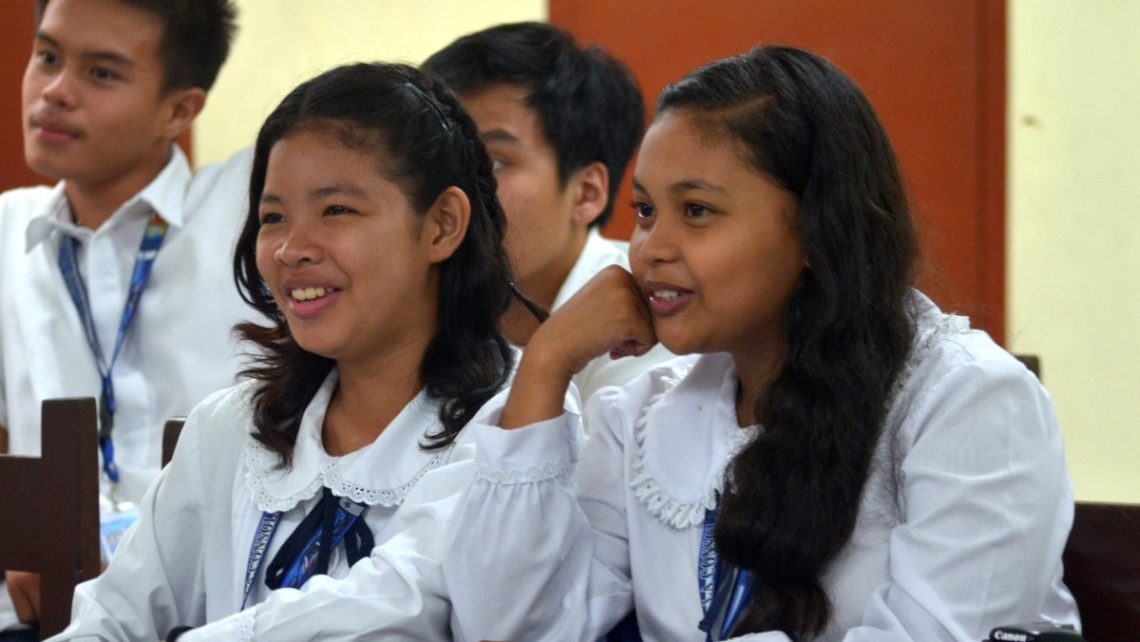Context: Educational attainment is one of the determining factors of employment in the Philippines. The nature of employment a person acquires depends on the level of education they have attained. Moreover, a competitive labour market demands a competent workforce.
In the year 2000, 8.58 million people had completed a high school education. In 2010 on the other hand 15.7 million people had completed high school education; almost double the preceding decade.
Implementation of programme/ initiative: La Consolacion College-Bacolod (LCCB) is a private, Catholic, co-educational institution of learning owned and administered by the sisters of the Order of St. Augustine.
In 1993, with an aim to decrease the number of student dropouts and accommodate students who were not able to get into public schools, the Free Night High School Program was created.
The programme is in line with the Department of Education’s (DepEd) aims to provide quality education that is accessible to all and laying the foundation for life-long learning and service. The programme is run by LCCB using their facilities to accommodate the enrolees. The teachers and teaching materials are also provided by the school.
Main challenges: The programme had difficulties in deciding which curriculum would be taught. This was one of the main challenges they encountered as well as students having relatively lower grades in certain subjects compared to public school students. The Philippines lags behind its South-East Asian neighbours in academic attainment in certain subjects including maths and science. They are recommended to follow a regular school curriculum to enable the programme enrolees to receive the same quality of education as other students.
Results achieved: From 1993 to 2011, the programme had a total of 474 beneficiaries. The highest graduation rate of the programme (100 per cent) was attained in 2004-05 and the lowest (53 per cent) occurred in 1997-98.
Menes (2011) conducted a study on the programme to determine its effectiveness as well as producing results that may help improve the programme. Of those graduates located for to follow up, 78 were either self-employed or unemployed; 74 were employed in various establishments in Bacolod City and 60 were employed in other parts of the country or abroad.
Moving Forward: The programme has helped DepEd in fulfilling its vision to provide accessible education for all. By providing free secondary education to the less fortunate in society, it also helps in curbing unemployment. Despite challenges in the curriculum, the programme may serve as an example for other institutions to help the poor gain an education as well as increase graduate employability.
Replicability: As the programme is free, LCCB provides the poor one of the most important resources any person can access—education. If academic institutions around the globe follow the footsteps of LCCB in providing free education to the less fortunate, they will give them an enhanced chance at employment and to create a better life. One of the biggest challenges for other institutions to implement such a programme is funding. Lack of funding may serve as a bottleneck for the programme’s replicability.
References:
Menes, C. C., et al. (2011). Free Night High School in a Private Catholic College: A Vehicle for Social Transformation. Development Education Journal of Multidisciplinary Research.
Project Details
Date: October 11, 2017
